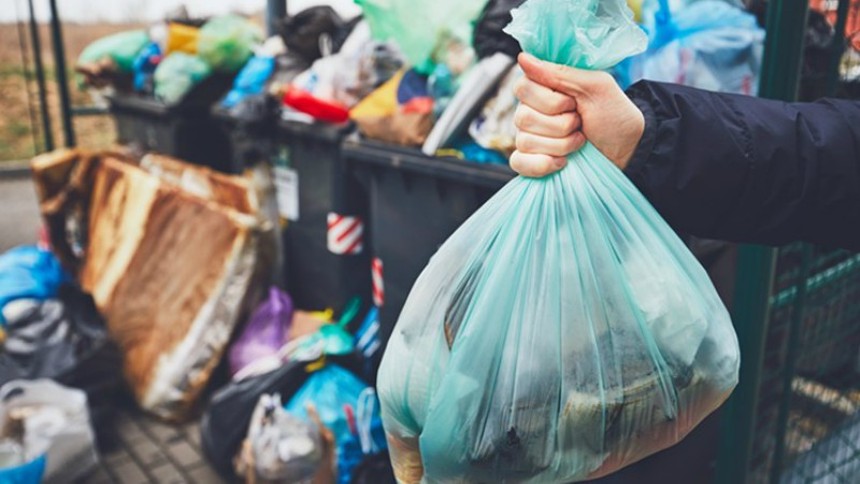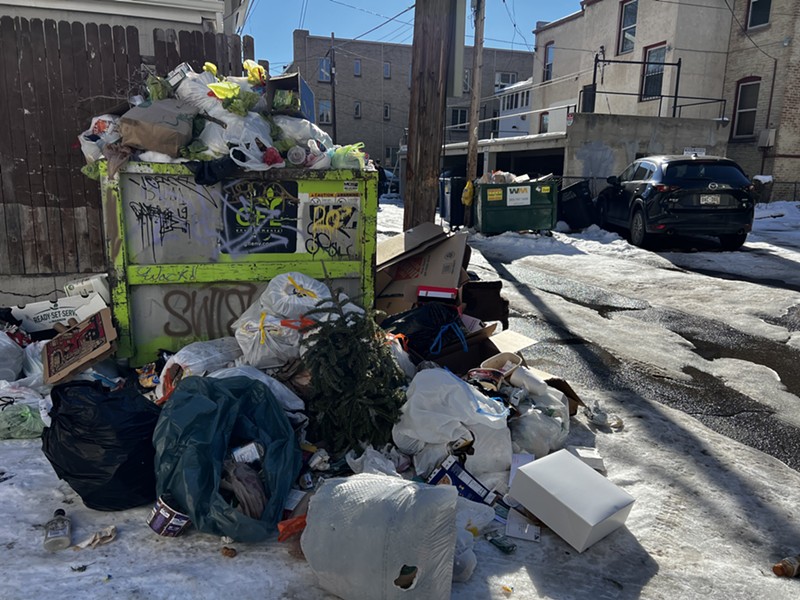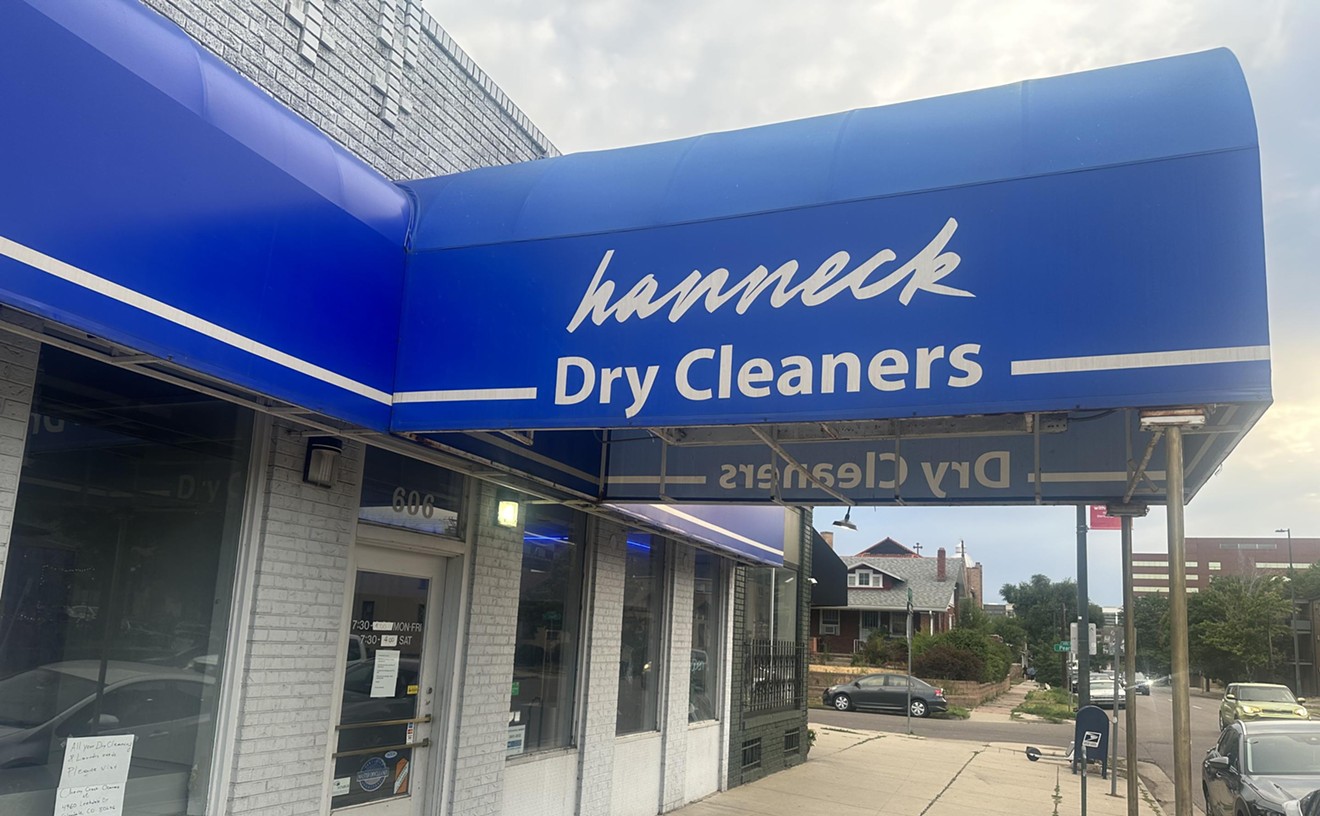Despite an audit warning that the city lacks the planning and resources needed to implement its new expanded waste services system, approved by Denver City Council in June 2022, in January the City and County of Denver successfully implemented phase one of the project: weekly recycling for every Denver resident served by the Denver Department of Transportation & Infrastructure.
The new program is based on the Pay as You Throw concept, where residents select and pay for the size of trash can they want, getting weekly recycling and compost pickup as part of the transaction.
“We take great pride in keeping our city clean,” says Vanessa Lacayo, marketing and communication specialist with DOTI.
But there’s still plenty more to do to make Denver less trashy, including rolling out composting to every resident served by DOTI. Currently, there are around 30,000 residents who have signed up for the composting program that is part of the expanded system; those people are spread across the city, Lacayo says.
The city is still working out its exact plan for how it will transition everyone else to composting, but says the target is late spring or early summer, and that the rollout is likely to be phased in based on location.
“We didn't just want to start out the gate and bring 150,000 customers online day one,” Lacayo says. “We’re trying to phase it in and making sure we're reaching out to those folks ahead of time, because in addition to the composting cart, they'll also get a small kitchen pail that they can put small scraps and stuff that they're cooking, or whatever they need to put right from their kitchen, so it's gonna be a whole thing.”
Lacayo says the department is working through an update of its composting guide, which hasn’t been done recently. (Westword compiled its own handy guide to trash, recycling and composting in the city in the meantime.)
The city's composting guide will inform people when their compost cart is coming and give them educational materials so that they know what to do with the cart when it arrives. The goal of the new system is to divert waste from landfills to recycling or composting; the city estimates that 50 to 75 percent of what people currently put in the trash could be recycled or composted.
DOTI will work with a contractor to deliver compost carts, and people will not have to be home to sign for them when they arrive, Lacayo adds.

Can Denver avoid a big mess with the new system?
Chalabala/iStock
Those who might be worried that they’re paying for composting but not getting it yet need not fear: The city is giving those without compost a $3-per-month credit for the lack of composting until their carts come. As the program bills quarterly, that will look like a $9 credit on each statement.
Residents will pay based on the size of their trash can. The options are 35 gallons, which fits two to three tall kitchen bags, for $9 a month; 65 gallons, which fits four to five bags, for $13 a month; and 95 gallons, which fits seven to eight bags, for $21 a month.
The payment process will be on Denver Utilities Online, and people can create an account once they receive a notice from DOTI with their property ID and account number — so don’t toss those notices from DOTI into the recycling bin (or, worse, the trash can) without opening them. Once residents have an account, they can select the size of their trash can there — or do it now on Pocketgov.
“If residents are filling up their current trash cart, we recommend waiting for our compost service to begin before they downsize,” Lacayo says, noting that most residents have the medium cart size now, though it varies based on neighborhood and when people moved in.
Since the ordinance passed, roughly 30,000 people have requested a new cart, she adds, and some people may already be able to tell if they need a smaller size.
“If you are a small home and you're not regularly filling up your trash cart as it is, then you'd make a really good candidate for a smaller size,” Lacayo says. Being able to recycle and compost will mean the cart is even less full.
DOTI has hired a Waste Diversion Manager and support staff to reach out to people and teach them how to recycle and compost correctly. It plans to work with residents when it sees contamination, with a goal of compliance and education rather than fines, though the ordinance allows fines between $500 and $999 for contamination.
“By and large, people want to do the right thing, and they want to help keep our city clean,” Lacayo says. ”But I do realize that there are some people that may not know where something goes. We definitely want to give people the benefit of the doubt: Maybe they just don't have the right resources there to help them.”
DOTI will work with people who contaminate their recycling or compost, sending an inspector to help them with proper waste disposal before any citation. It will do the same for people who overfill their trash bins.
Rather than immediately asking people to size up, the department plans to reach out to those who are overfilling regularly and make sure they know where to put each piece of waste. Drivers will only note those who are constant over-fillers, so that one week of a stuffed bin won’t result in action from the city, either.
“A lot of what people are throwing right now — and once we introduce composting, most of what they're throwing — can actually be recycled or composted,” Lacayo says. “So we’re trying to work with them to help get them to the right spot, or maybe they do need a larger bin.”
Those who are tempted to save a few bucks by paying for the smallest possible trash bin and finding dumpsters in their area to put overflow trash in should know that doing so is illegal.
“In terms of illegal dumping, that was not allowed before the ordinance took effect and is not allowed now,” Lacayo says. “Nothing has changed there.”
Thanks to the Waste No More initiative voters approved in November, there are likely to be more recycling and composting bins in areas that the public can access. The initiative requires all businesses to provide composting and recycling services. However, that doesn’t mean residents can use the bins paid for by businesses for their personal use.
Residents and private property owners can report suspected illegal dumping through 311 or Pocketgov.
“The goal for the program isn't for people to take their trash and go put it in private property,” Lacayo says. “We're not telling our residents to do that, and we're not hoping that they do that, and we're giving them all the resources so they don't have to do that.”
Illegal-dumping penalties range from $150 to $999, depending on what is dumped and how many times a person is cited, so it’s in people’s best interest to avoid doing it.
Those worried about affording their trash services can apply for financial assistance at any time. The ordinance includes rebates for those who fit under certain income criteria.
Overall, the city isn’t looking to trash people for their trash habits.
“I don't want it to be like, ‘We're gonna make you get a bigger bin if you're not doing it right,’ or ‘We're gonna fine you,’” Lacayo says. “We're trying to get people to really rethink waste. We're not trying to shame people, and we're not trying to make them feel bad about it. We're trying to figure out: How can we do this collectively together and reduce what goes in the landfill? That's our ultimate goal. It's not a new way for us to get creative on how to penalize people.”











